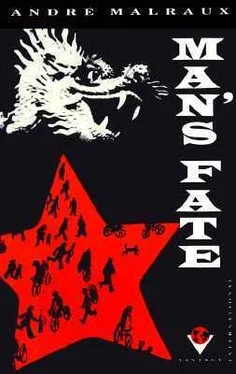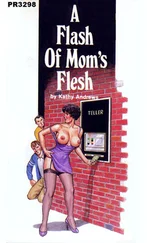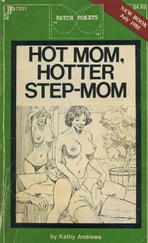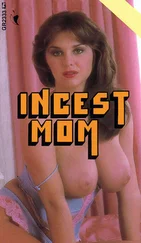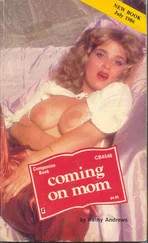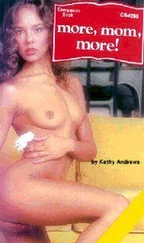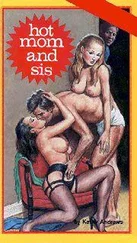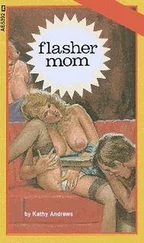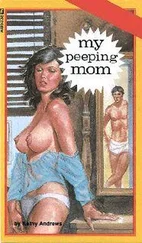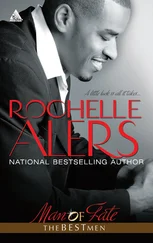“The lady was nice today,” said the child, “she didn’t hurt me hardly at all. ”
The lady was May. Hemmelrich remembered: “Mastoid. My poor fellow, we’ll have to break the bone. ” Hardly more than a baby. -. All he knew of life so far was suffering. Hemmelrich would have to “explain to him.” Explain what? That it was advantageous to have the bones in his head broken so that he wouldn’t die, so that he would be rewarded by a life as precious and delicate as that of his father? “Oh, the horror of youth!” he had said for twenty years. How long before he would say, “Oh, the horror of age! ” and pass on to his wretched offspring those two perfect expressions of life? A month before, the cat had dislocated its paw, and they had had to hold it while the Chinese veterinary set the bone back into place, and the creature shrieked and struggled; it didn’t understand; he felt that it believed it was being tortured. And the cat was not a child, did not say: “He hardly hun me. ” He went downstairs again. The smell of the corpses, on which the dogs were no doubt ravenously feeding close by in the back-alleys, drifted in with the diffused sunlight. “It’s not suffering that is lacking,” he thought to himself.
He could not forgive himself for having refused. Like a tortured man who has yielded secrets, he knew that he would do it again, but he could not forgive himself. He had betrayed his youth, his desires and his dreams. How could he help betraying them? Some people wanted only what they could have. But all the things he wanted were things he could not have. He wanted to give shelter to Ch’en and go with him. Go. Offset by violence-any kind of violence-by bombs, this atrocious life that had poisoned him since he was born, that would poison his children in the same way. Especially his children. He could accept his own suffering: he had acquired the habit. But not that of the children. “He has become very intelligent since he has been ill,” May had said. As if by chance.
Go out with Ch’en, take one of the bombs hidden in the brief-cases, throw it. That was good sense. In fact the only thing that had a sense, in his present life. Thirty- seven years. Another thirty years to live, perhaps. To live how? The sale of these records, whose wretched profit he shared with Lu Yu Hsiian, by which neither of them was able to live-and, when he was old. Thirty-seven years. As far as memory goes back, people say; his memory didn’t have to go back: from beginning to end, it was only wretchedness.
A bad pupil at school: absent one day out of every two-his mother made do her work so she could get drunk in peace. The factory: a laborer. A bad character; during his military service, always behind bars. And the war. Gassed. For whom, for what? For France? He was not French, he was wretched. But in the war one could eat. Then, sent to Indo-China, demobilized there. “The climate here makes manual labor impossible. ” But it allowed you to die of dysentery, especially those who were known as bad characters. He had failed in Shanghai. Bombs, for God’s sake, bombs!
There was his wife: life had given nothing else. She had been sold for twelve dollars. Abandoned by the buyer whom she had ceased to please, she had come to him in terror, to eat, to sleep; but in the beginning she had not been able to sleep, expecting every moment a display of the European wickedness and cruelty that she had always been told about. He had been good to her. Emerging little by little from the depth of her fright, she had cared for him when he was ill, had worked for him, endured his outbursts of impotent hatred. She had clung to him with the love of a blind and persecuted dog, suspecting that he too was a blind and persecuted dog. And now there was the kid. What could he do for him? Scarcely feed him. He had strength left only for the pain that he could inflict; there existed more pain in the world than stars in the sky, but the worst of al was the pain he could inflict upon this woman: to abandon her by dying. Like that starving Russian, down the street, who had become a laborer and then, one day when his misery was too great, had committed suicide; his crazed wife, in a blind rage, had beaten the corpse that was abandoning her, with four youngsters in the corners of the room, one of them asking: “Why do you fight?”. He kept his wife, his kid, from dying. That was nothing. Less than nothing. If he had had money, if he could have left it to them, he would have been free to go and get killed. As if the universe had not treated him all his life with kicks in the belly, it now despoiled him of the only dignity he could ever possess-his death. The smell of corpses was blown in upon the motionless sunbeams by every gust of 'wind. He saturated himself in it with a sense of gratified horror, obsessed by Ch’en as by a friend in the throes of death, and seeking-as though it were of any consequence-whether the feeling uppermost in him was shame, fraternity or an atrocious craving.
Once more Ch’en and his companions had left the avenue. The courts and the side-streets were not closely watched, as the general’s car did not pass through them. “We must get a new plan,” Ch’cn was thinking as he walked with bowed head, looking down at his smug shoes as they advanced one after the other. Run into Chiang Kai-shek’s car with another car driven in the opposite direction? But every car might be requisitioned by the army. To try to — use the fanion of a legation to protect the car-in case they were able to get one-was risky, for the police knew the chauffeurs of the foreign ministers. Bar the way with a cart? Chiang Kai-shek was always preceded by the Ford with his bodyguard. Before a suspicious obstruction both guards and the police on the running-boards would open fire on whoever attempted to approach. Ch’en listened: his companions had begun to talk.
“Many generals will abandon Chiang Kai-shek if they know he’s in danger of being assassinated,” said Pei. “There is faith only among us.”
“Yes,” said Suan, “the sons of torture-victims make good terrorists.”
They both were.
“And as for the generals who remain,” added Pei, “even if they build up a China that is opposed to us, they will make a great nation, because they will have built it with their blood.”
“No!” said Ch’en and Suan, both at once. Neither of them ignored how great the number of nationalists among the Communists had grown, especially among the intellectuals.
Pei wrote, for periodicals that were quickly suppressed, stories that revealed a painfully self-satisfied bitterness, and articles-the last of which began in this fashion: “Imperialism being sorely pressed, China plans to solicit its benevolence once more and ask it to substitute a nickel ring for the gold ring that it has fastened to her nose. ” He was also preparing an ideology of terrorism. For him Communism was merely the one true way to bring about the revival of China.
“I don’t want to create China,” said Suan, “I want to create my people, with or without her. The poor. It’s for them that I’m willing to die, to kill. For them only. ”
It was Ch’en who answered:
“As long as we try to throw the bomb we’ll have bad luck. Too many chances of failure. And we must get it over with today.”
“There’s no other way that’s any easier,” said Pei.
“There is a way.”
The low, heavy clouds were advancing in the same direction as they, with the uncertain yet lordly movement of destinies. Ch’en had shut his eyes to meditate, but continued to walk, close to the walls as usual; his comrades were waiting for to speak, watching his curved profile.
“There is a way. And I believe there is only one: we must not throw the bomb; we must throw ourselves under the car with it.”
Читать дальше
